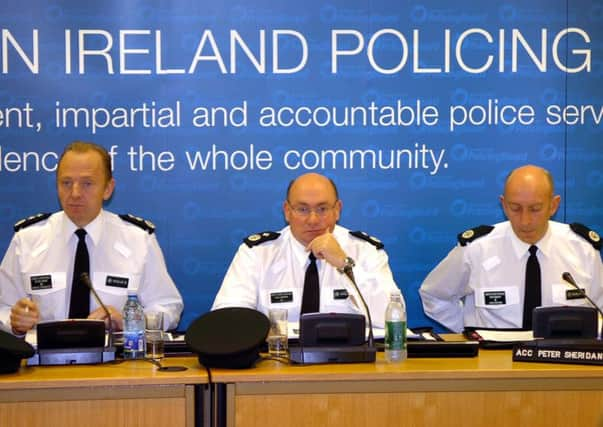Sheridan claimsO’Hara case waskey Rapid guide


Mr Sheridan, set up the controversial review of people wanted for offences prior to 1998 in February 2007.
He told the NI Affairs Committee that by then the PSNI had to adhere to more rigorous standards and couldn’t just lift people willy-nilly.
Advertisement
Hide AdAdvertisement
Hide Ad“If somebody was listed as wanted in the late 1970s, that might not stand the test of a case in 2007. Even when I joined the police, when I was a constable in 1978, I could have been told by the then‑sergeant, ‘Go and arrest X under Section 11 of the Terrorism Act.’ That would have been enough, and I would have gone and arrested them,” he told the Committee.
But Mr Sheridan said that by February 2007 - Sinn Féin had just accepted the PSNI at a pivotal Ard Fheis and critical NI Assembly elections loomed - standards of proof were higher.
He told the Committee that a wrongful arrest and false imprisonment case taken by Gerard O’Hara, against former RUC Chief Constable John Hermon had transformed the landscape.
Mr Sheridan explained: “There was a string of cases like O’Hara v Chief Constable where that changed, and the legislation changed from being that a constable just had to suspect to a constable having to have reasonable grounds, so it became stronger in legislation that the individual police officer had to have personal, reasonable grounds, not simply to suspect. That required them to have that information, so if someone was listed as wanted in the file and that was all of the evidence, then that would not stand the test in 2007.”
Advertisement
Hide AdAdvertisement
Hide AdThe case Mr Sheridan referred to was that taken by Mr O’Hara against Mr Hermon, whose widow Sylvia Hermon, UUP MP, is a member of the Committee.
According to a judgement delivered by the Law Lords in 1996, by which time Ronnie Flanagan was Chief Constable, Mr O’Hara was arrested on December 28, 1985 after “police officers entered the appellant’s house at...Duncreggan Road, Londonderry and conducted a search of the premises.”
The judgement says Mr O’Hara was arrested under the Prevention of Terrorism Act 1984 but released on January 13, 1986, without ever being charged with anything.
The judgment notes that the arresting officer carried out the arrest on the say-so of a senior officer.
Advertisement
Hide AdAdvertisement
Hide AdMr Sheridan told the Committee higher standards followed from the O’Hara case.
Back in January the Sentinel reported how a strident opponent of the republican movement - the then Irish Justice and now Irish Finance Minister Michael Noonan - had concerns over the RUC not having enough evidence to convict John Downey.
At a dinner with the then Secretary of State Douglas Hurd in late 1984 Mr Noonan expressed the fear there may not have been enough evidence to secure a conviction against Mr Downey.
Elsewhere in his evidence to the NI Affairs Committee Mr Sheridan, who stood down from the PSNI in 2008, said the whole furore over OTRs was hurtful to victims’ families.
Advertisement
Hide AdAdvertisement
Hide Ad“I feel extremely sorry for the families, because I heard some of the families of the Hyde Park bombers saying that the police had let them down, and they are utterly bewildered about who was doing what and what was happening.
“I was conscious that, if I did anything in the media, there would have been sound-bites and it would only add to it. This is the first opportunity we have to give a broader picture. Is this going to help the victims, what I am doing? Probably not. It is probably going to add to the bewilderment and confusion as to what was happening.
“We continue to talk about victim-centred approaches and thinking about the victims. At some stage, we have to separate this whole past and deal with victims, and deal properly with victims,” he said.